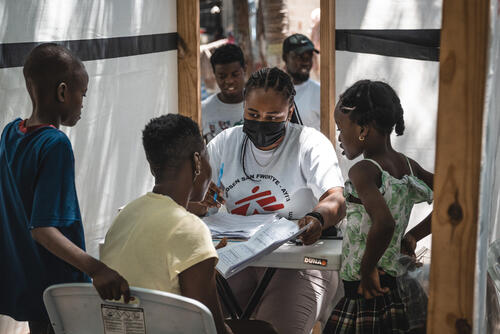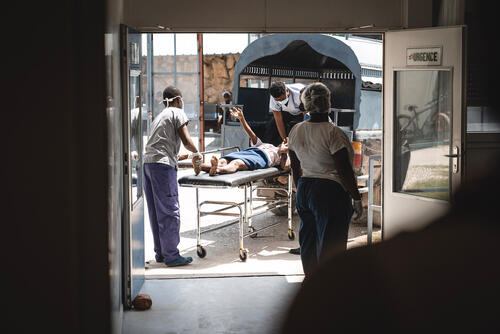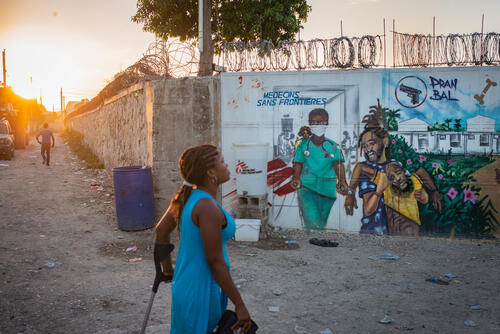Two months since a magnitude 7.2 earthquake struck southern Haiti, on 14 August, medical needs remain high in affected areas. While many people injured in the earthquake continue their treatment and rehabilitation, other medical needs have increased in the earthquake-affected areas due to the destruction of homes, health facilities and other infrastructure.
In response, Médecins Sans Frontières (MSF) has been supporting hospitals and clinics with staff, supplies, reconstruction and water and sanitation services. At hospitals in Les Cayes, Jérémie and Port-au-Prince, we have provided surgical and post-operative care to 230 people with severe injuries from the earthquake.
“Many of our hospitalised patients have now been discharged and are receiving follow-up care as they continue their rehabilitation,” explains Raphaël Torlach, MSF emergency coordinator in Les Cayes. “We are helping patients with transportation and lodging so they can attend their appointments, because some live far away.”
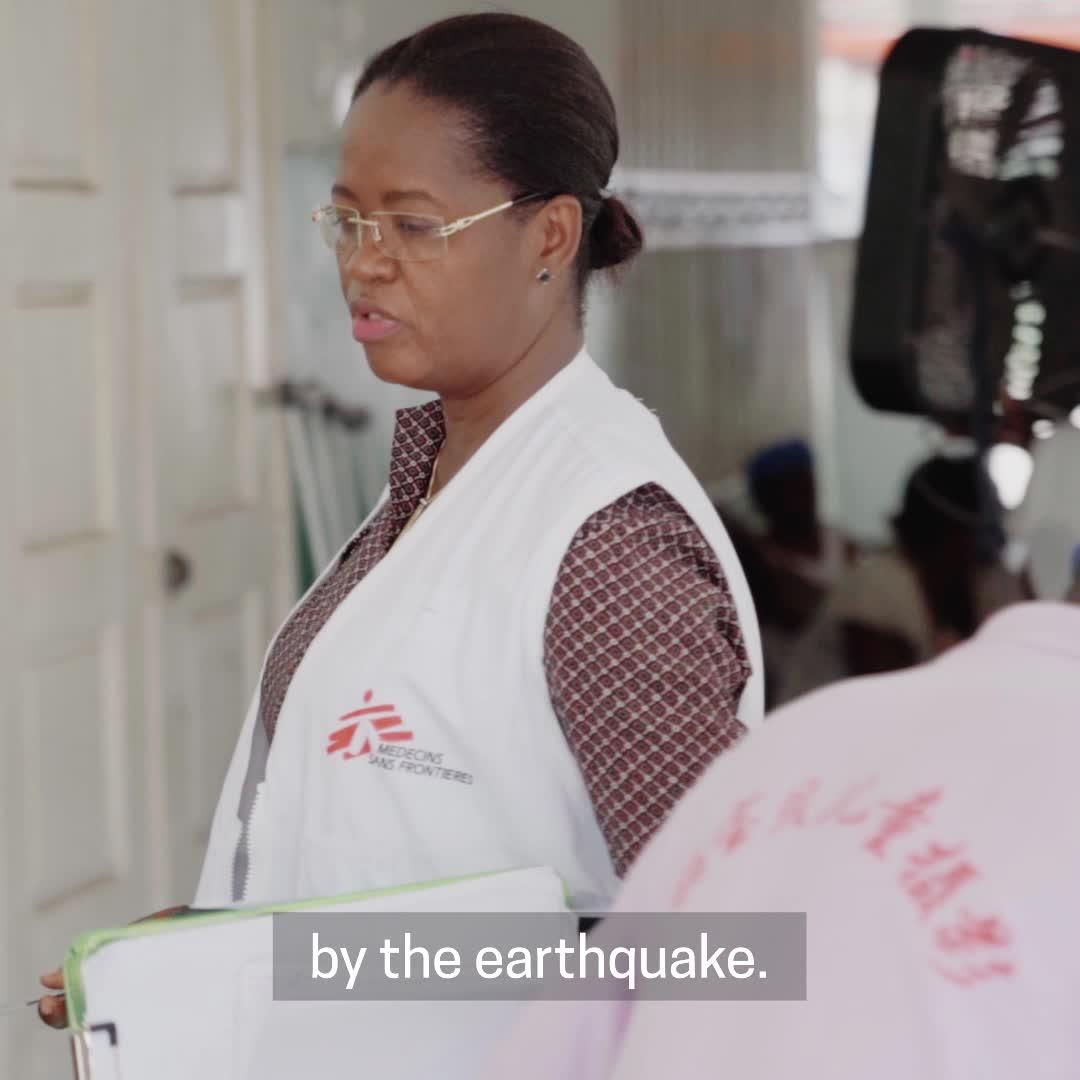
Our earthquake response in Les Cayes
High needs for earthquake survivors and other patients
At the Immaculate Conception Hospital in Les Cayes, the number of patients arriving in the emergency room and the number of surgeries remain very high. An MSF medical team works together with the hospital’s staff to treat patients in the emergency, surgery and post-operative wards, while also supplying medication and equipment.
“Nearly 50 patients are still hospitalised in the hospital wards we support,” Torlach says. “They include earthquake survivors with severe injuries but also patients with other traumatic injuries.”
Damaged infrastructure and treatment through mobile clinics
In Port-à-Piment, the earthquake severely damaged a public hospital where we provided sexual and reproductive healthcare for years. Medical services were initially moved outside to tented areas, and we renovated our logistical base in Port-à-Piment to provide a space for our teams and hospital staff to treat patients safely.
The OFATMA Hospital in Les Cayes was also badly damaged in the earthquake. Working along with hospital staff, one of our medical teams is preparing to manage paediatric and neonatal care in hospital tents. We are also building and equipping a delivery room and providing tents for pre- and postpartum care.
To reach people in isolated areas of Haiti’s Sud department, we organised mobile clinics along the southern coast and in the mountains, as well as in displacement camps in Les Cayes. The mobile clinic teams – with a doctor, nurses, health promoters and often a psychologist – have carried out more 7,300 patient consultations so far, providing basic healthcare and mental health services.
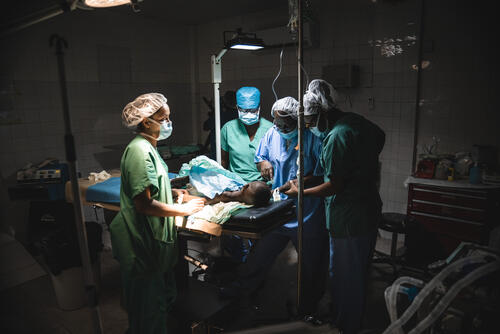
With time, the number of patients with earthquake-related injuries has decreased, but many people have ailments related to poor sanitation and living conditions, such as skin lesions, acute respiratory infections, parasites, gastritis, and genital and urinary tract infections.
Patients with severe conditions are referred to functional health facilities for care. These include malnutrition, infected wounds and abscesses, pregnancy complications, unmanaged chronic conditions and post-traumatic stress disorder.
Supporting people and communities with non-medical needs
This week, we will finish distributing 5,000 kits of relief items to villages and displacement camps in the Sud department.
In Haiti’s Nippes department, our teams have supported health facilities with donations of medical supplies, tents and financial support. Over the last four weeks, our mobile clinic teams have treated 1,416 people, mostly for abdominal pain, gastritis, infections and fever.
In the community of Baradères, the earthquake damaged or destroyed thousands of homes, forcing people to sleep outside or under makeshift shelters. It also damaged water systems, forcing people to find alternative sources.
“While we responded to the immediate needs with water trucking, installation of water bladders and an emergency surface water treatment plant, we also put a big focus on ensuring water supply for the community for the longer-term, with the repair of water infrastructure,” said Sadie St. Denis, MSF emergency coordinator in Nippes.
Our teams have distributed non-food items such as jerrycans, water purification tablets, soap, hammers, plastic sheeting, blankets and mosquito nets to help families build shelters and reduce the health risks associated with unsanitary conditions.




